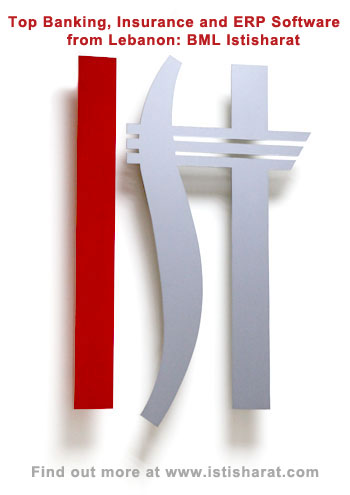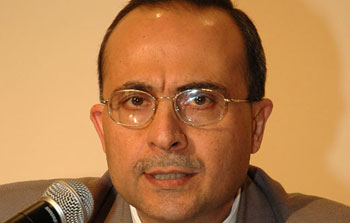Lebanon: IT Sector Report 2013 | Analysis of IT Sector in Lebanon
The Levantine ICT sector has managed to successfully take its slice of the global market for bits and bytes.

Bits and bytes in Beirut
Lebanon: IT Sector Report 2013 | Analysis of IT Sector in Lebanon
When meeting Dal Hitti, the General Manager of the Association of the Lebanese Software Industry, or ALSI, for a chat, he quickly gets to the point about why so little is known worldwide about software made in Lebanon. “The problem with the software industry is that they work with a low profile, because they do not want governments to meddle with their affairs,” says Hitti.
Nevertheless, the Levantine ICT sector has managed to successfully take its slice of the global market for bits and bytes. “Lebanon exports to Africa, Europe and within the Middle East to the United Arab Emirates, Saudi Arabia, Bahrain, Qatar, Iraq, Syria, Jordan and Egypt.  We have offices in Iran, too,” Hitti explains. The sector is growing fast. “In the software sector alone we have 106 companies. The entire ICT sector has more than 1,000 companies and more than 25,000 employees.”
We have offices in Iran, too,” Hitti explains. The sector is growing fast. “In the software sector alone we have 106 companies. The entire ICT sector has more than 1,000 companies and more than 25,000 employees.”
The sector is growing fast; according to figures compiled by Hitti, growth is increasing “by more than 25% a year.” This means that Lebanon’s ICT industry doubles every three years.
Hitti is proud to expand on the industry’s reach. “Nestlé, the world’s largest food and beverage producer, for example – all their programmes are made in Lebanon (the company name is Sword).”
Other big local names are CCT, “which is the number one,” says Hitti. “In Banking, it’s Astrolabe, Blue Ring and SAB. Netways, the biggest company in the Arab World is specialised in e-government. The owners are Jean and Rola Moussa. The other big software company is Murex.”
New markets are also big on Beirut’s screen. BML Istisharat, a leader in banking, insurance and ERP software products in Lebanon, has recently spread its wings in the Far East. “We just scored our first deal with a local bank in Malaysia,” says Joe Faddoul, Chairman of BML Istisharat, “which means our software is up and running in more than 30 countries: in the US, Europe, Africa, the Middle East, and now in Asia.”
Teamwork is a key factor for the ICT industry’s success, says Hitti: “At ALSI we have a cluster of companies that work together on tasks given by the government according to international demand. Some projects require 400 engineers. There is no one company that can complete such a project on its own, so we distribute tasks to different companies to work together on the project.”
The sector is growing fast; according to figures compiled by Hitti, growth is increasing “by more than 25% a year.”
But how can a tiny country like Lebanon compete with the world’s IT giant Bellwether in India? ALSI GM Hitti: “We have advantages over India, for example, the low time difference with Europe. Lebanon is a trilingual country. Most of us speak Arabic, English and French; this is good for communication.”
BML Istisharat’s Chairman Joe Faddoul adds that size matters. “I think we are more agile and more reactive than the big companies. If you ask for an amendment in the software from a company with 5,000 employees it takes some time to go through all the procedures and processes. We can be more agile and adapt to different environments more flexibly than the big companies.”
Like nearly all industry sectors in the Middle Eastern state, Lebanon’s software producers are facing issues with the government. Dal Hitti: “We have what is called the e-transaction Law committee, which was meant to be in charge of e-signatures, for example, but it has still not been established, and this is impeding e-transactions. We are fighting to get it up and running by 2012-13.”
The endemic copy-paste-mentality also causes headaches.  “There is a special department for intellectual property in the Ministry of Economy, however we are still facing a huge problem of piracy in the software sector,” Hitti complains. However, “this problem is probably not limited to Lebanon.We are trying to get the government to tackle it more seriously.”
“There is a special department for intellectual property in the Ministry of Economy, however we are still facing a huge problem of piracy in the software sector,” Hitti complains. However, “this problem is probably not limited to Lebanon.We are trying to get the government to tackle it more seriously.”
Last but not least, hacker attacks are threatening the country’s reputation as a safe ICT hub. On August 9 2012, Russian anti-virus software producer Kaspersky announced the discovery of “Gauss”, a new virus designed to monitor on-line bank transactions. “Gauss is a complex, nation-state sponsored cyber-espionage toolkit designed to steal sensitive data, with a specific focus on browser passwords, online banking account credentials, cookies, and specific configurations of infected machines,” Kaspersky said in an media statement.
“Analysis of Gauss shows it was designed to steal data from several Lebanese banks including the Bank of Beirut, EBLF, BlomBank, ByblosBank, FransaBank and Credit Libanais,” Kaspersky said, adding that “it targets users of Citibank and PayPal.”
There is no doubt about it: Lebanon’s software industry faces headwinds and tailwinds amid an ever growing and demanding market.